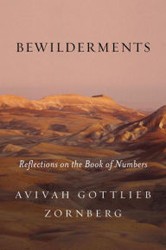For as long as there has been a biblical text, sermons have been preached. Rabbis have sought to interpret, elucidate, clarify, broaden, legislate and otherwise comment on the text. Rabbi Louis Jacobs has been preaching and teaching for over 60 years. This collection of some of his sermons and homilies on the Torah readings and on Pirkay Avot (Ethics of the Fathers) is a delightful and much appreciated contribution to this genre.
Three significant components make this volume attractive. The Introduction gives a thorough yet concise history of Jewish preaching. Jacobs covers rabbinic d’rashot, philosophical exegesis, Renaissance preachers, and the modern sermon, complete with the influence of Christian modes of sermonizing. The survey cites all the classic works in this field and is an excellent summary. He also makes distinctions between homilies and sermons, and written essays versus speeches to a live audience.
The second part of his Introduction is an appeal to keep sermons focused on Jewish theology. Too often preachers wander far afield and feel obligated to bring current events or other issues into their talks. Rabbis are (or should be) more familiar with Jewish texts and concepts than they are about political science, sports, movies, television, medicine, current events, etc. That is the rabbi’s task — to teach. Judaism can be faithfully presented in religious terms without obscurantism.
He then proceeds to offer numerous examples of this type of sermon. Through the use of stories, parables and midrashim, Jacobs conveys the beautiful lessons of Judaism. Topics include human progress, faith, a religious outlook, trust, the power of ideas, martyrdom, asceticism, Jewish expression, human struggle, dignity, miracles, and many more. He does not shy away from difficult issues. He accepts the challenge of presenting Judaism to a modern audience— couched in the traditional idioms of the faith. What is also attractive about these sermons is that they are all quite short and to the point: another lesson to be learned by those who preach today. Layman and scholar alike will enjoy this book.





